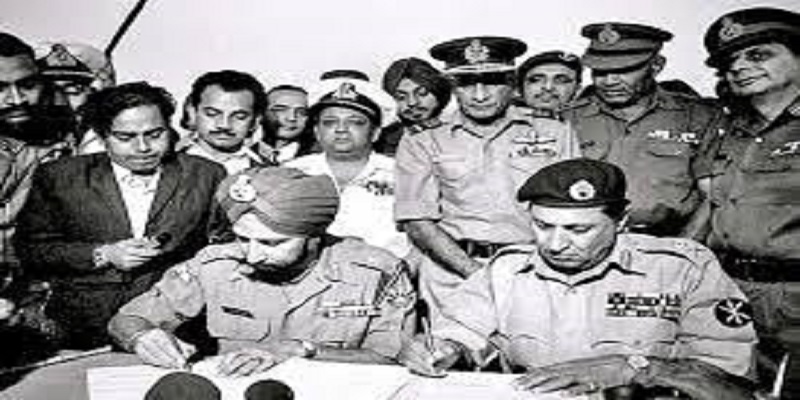The Birth of Bangladesh in 1971
The year 1971 marked a pivotal moment in South Asian history with the emergence of Bangladesh as an independent nation. The conflict that led to the birth of Bangladesh was a culmination of political, economic, and cultural tensions between East and West Pakistan. The roots of the crisis can be traced back to the creation of Pakistan in 1947 when the subcontinent gained independence from British rule. The two wings of Pakistan, East and West, were geographically separated by India, and their cultural and linguistic differences became increasingly apparent over time.
The seeds of discontent were sown early on as the political power and economic resources were concentrated in West Pakistan, leaving East Pakistan marginalized and underdeveloped. The Bengali-speaking population of East Pakistan, which constituted the majority, felt alienated and economically deprived. The situation worsened as the ruling elite in West Pakistan, primarily consisting of Punjabis and Urdu-speaking Muhajirs, dominated the political landscape and marginalized the Bengali leaders.
The linguistic and cultural diversity further fueled the divide, with the West imposing Urdu as the official language, disregarding the linguistic preferences of the Bengali-speaking majority. The discontent in East Pakistan found a political voice through the Awami League, led by Sheikh Mujibur Rahman. The Six-Point Movement in 1966, which called for greater autonomy for East Pakistan, was a significant turning point, highlighting the growing demands for self-determination.
The general elections of 1970 served as a catalyst for the crisis. The Awami League secured a landslide victory in East Pakistan, winning 160 out of 162 seats allocated to the region. This gave the Awami League an overall majority in the national parliament. However, the ruling authorities in West Pakistan, particularly President Yahya Khan, were reluctant to transfer power to the Awami League, fearing a loss of control and influence.
As negotiations faltered, the political crisis escalated, leading to a military crackdown by the Pakistani government in East Pakistan on March 25, 1971. This brutal operation aimed at suppressing the demands for autonomy and resulted in widespread atrocities, including mass killings, rapes, and displacement. The military's actions led to a humanitarian crisis, triggering a wave of refugees fleeing to neighboring India.
The atrocities committed by the Pakistani military drew international condemnation and sparked a humanitarian response. The influx of refugees into India strained relations between the two countries, and India became increasingly involved in the unfolding crisis. The international community, however, remained divided, with global powers reluctant to intervene in what they perceived as an internal matter for Pakistan.
As the situation continued to deteriorate, India found itself compelled to take decisive action. On December 3, 1971, preemptive airstrikes by the Indian Air Force targeted Pakistani airbases, marking the official commencement of the Indo-Pakistani War. The conflict, which lasted for 13 days, witnessed intense battles on both the eastern and western fronts. The Indian military, along with the Mukti Bahini (Liberation Army) formed by Bengali nationalists, achieved significant victories in East Pakistan.
The turning point came with the Battle of Dhaka, where the Pakistani military surrendered to the joint Indian and Mukti Bahini forces on December 16, 1971. This event marked the end of the war and the birth of Bangladesh as an independent nation. The Pakistani military leadership, including Lieutenant General A.A.K. Niazi, formally surrendered to Lieutenant General Jagjit Singh Aurora of the Indian Army.
The creation of Bangladesh was met with joy and relief among the Bengali-speaking population, who had endured years of marginalization and oppression. Sheikh Mujibur Rahman, who had been imprisoned by the Pakistani authorities, was released and returned to lead the newly independent country. The formation of Bangladesh was also welcomed by the international community, with the new nation gaining recognition from nations worldwide.
The war, however, exacted a heavy toll on all parties involved. The human cost was immense, with estimates of civilian casualties ranging from hundreds of thousands to millions. The conflict left scars on the collective memory of the people of Bangladesh, Pakistan, and India, shaping their relationships for years to come.
The geopolitical consequences of the war were significant. The creation of Bangladesh reshaped the political landscape of South Asia, altering the dynamics between India and its neighbors. The conflict also highlighted the limitations of military intervention in resolving political disputes, as well as the importance of addressing the root causes of such conflicts to ensure lasting peace.
The War of 1971 and the birth of Bangladesh represent a critical chapter in the history of South Asia. The struggle for autonomy, fueled by linguistic, cultural, and economic disparities, culminated in a conflict that reshaped the political map of the region. The creation of Bangladesh was a triumph of the will of the people and a testament to the human cost of political failures. The legacy of the war continues to influence the relationships between the nations involved and serves as a reminder of the importance of addressing the grievances of marginalized populations to build a more just and inclusive society.

